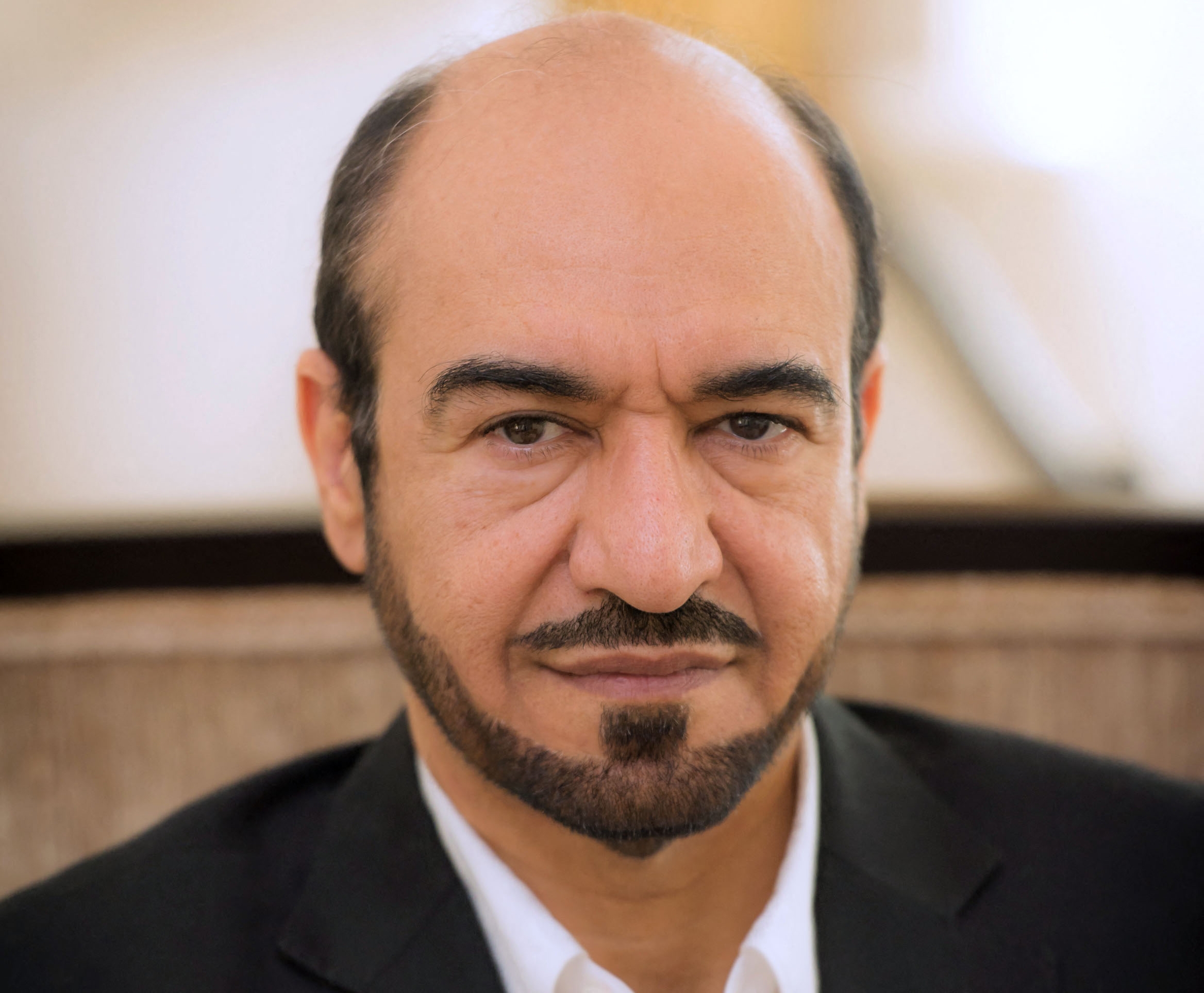Ex-Saudi spy chief's children must be released, say US senators

Top US senators are urging President Joe Biden to personally advocate for the release of Saad al-Jabri's two children in Saudi Arabia, as Washington considers intervening in a series of lawsuits between the former spy chief and state-run companies in Riyadh to prevent the release of US intelligence secrets.
In a bipartisan letter, obtained by Middle East Eye, and sent to Biden on Wednesday, Republican Senator Marco Rubio and Democratic Senators Patrick Leahy, Tim Kaine, and Ben Cardin told the president they were "gravely concerned" about the arrest and abduction of 23-year-old Omar al-Jabri and 21-year-old Sarah al-Jabri.
"The Saudi government is believed to be using the children as leverage to blackmail their father and force his return from Canada, where he currently resides in fear of possible retribution for his previous support for a rival of Saudi Crown Prince Mohammad Bin [Salman]," the senators said.
"The prolonged prosecution of Dr. Aljabri and his family members has now evolved to risk the exposure of classified U.S. counter-terrorism projects."
The letter was first reported on by Foreign Policy.
The four senators are hoping for Biden's help in facilitating a resolution that would free the two Jabri children and also protect US intelligence findings, according to Foreign Policy.
Both of Jabri's children were arrested in March 2020 and held incommunicado until January 2021, according to the New York-based rights group Human Rights Watch (HRW). Omar and Sarah were sentenced to nine and six years in prison, respectively, the rights group said.
The rights group also said that Saudi authorities had detained as many as 40 other Jabri family members and associates.
US officials have sought to intervene in a Canadian lawsuit involving the former Saudi spymaster, documents show, a move that could shield sensitive American undercover intelligence operations but deprive Jabri of the necessary evidence to prove his case.
Section 38
In a recent letter to Jabri's lawyer, the US Justice Department's attorney urged him to "postpone all filings" before an Ontario court until 30 September to allow Washington time to consider measures to protect its interests.
The letter was sent in regards to a court case where a number of Saudi state-run companies accused Jabri of embezzling money while he was working as an intelligence official.
"Matters involving foreign relations and national security of the United States... require 'delicate' and 'complex' judgements," government attorney Malcolm Ruby wrote in the letter dated 29 June, as seen by AFP.
While the US had "no position" on the case, and does not have direct influence on the Canadian courts, it was concerned by "the protection of sensitive national security information", Ruby added.

The letter said that filings submitted by Jabri's team would automatically trigger provisions under "section 38 of the Canada Evidence Act", forcing his lawyers to redact sensitive information.
Section 38 of the Canada Evidence Act prevents the disclosure of sensitive information or documents without the consent of Canada's attorney-general or a court order.
Washington could invoke section 38, which would allow it to resist any court-ordered disclosure of sensitive information in the US, legal experts say. However, this would ultimately damage Jabri's defence as it could close off the evidence he needs to prove his case.
"While Section 38 might temporarily prevent the spilling of US national security secrets, it deprives Dr Aljabri from using evidence central to his defence," a Toronto-based lawyer familiar with the case, who asked to remain anonymous, told AFP.
Ruby referred Middle East Eye to the US Justice Department for comment, which declined to comment.
Neither the Canadian justice department, nor the Saudi Embassy in Washington, responded to MEE's request for comment by time of publication.
'Tiger squad'
Jabri, who had deep ties with the CIA and had been a key go-between for western intelligence agencies and the Saudi intelligence apparatus, worked closely under former Saudi Crown Prince Mohammed bin Nayef. In 2017, Bin Nayef was ousted, put under house arrest, and replaced by his cousin, Mohammed bin Salman (MBS).
Jabri fled the country before the palace coup and arrived in Canada in 2018, where he currently resides.
Since deposing bin Nayef, MBS has centralised power and targeted any and all perceived foes and potential opponents. He has arrested several members of the royal family, including Prince Faisal bin Abdullah al-Saud, a son of the late King Abdullah.
A source familiar with Jabri's situation previously told MEE that he had become a target of MBS due to his loyalty to bin Nayef and his vast knowledge of the kingdom's powerful interior ministry.
'[Washington is] jumping through legal hoops to protect its national security interests'
- Source close to Saad al-Jabri
MEE first reported that after fleeing Riyadh, Jabri was "chased" by Saudi authorities who were willing "to do anything to get him back".
Last year, in a bombshell lawsuit filed in the US against MBS, Jabri claimed a 50-person assassination team, known as the "Tiger Squad", was sent to kill him in Canada.
Then, in counter lawsuits in both the US and Canada, nearly a dozen Saudi state-run companies accused Jabri of embezzling billions of dollars during his tenure under bin Nayef. The Canadian court subsequently issued a worldwide freeze on Jabri's assets.
A source close to Jabri has dismissed the allegations brought forward by the Saudi companies as a "blind vendetta", and denied any financial wrongdoings.
Washington is "jumping through legal hoops to protect its national security interests", the source told AFP, adding the US would do better "brokering an out-of-court resolution to this nasty royal feud that entangled Dr Saad and his children".
Middle East Eye delivers independent and unrivalled coverage and analysis of the Middle East, North Africa and beyond. To learn more about republishing this content and the associated fees, please fill out this form. More about MEE can be found here.





